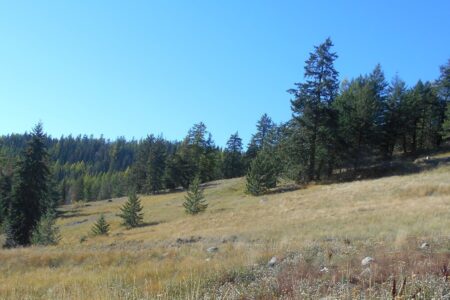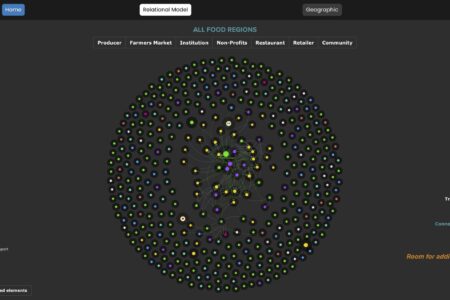The Year-End Blues
“What rough beast … slouches toward Bethlehem to be born?” — W.B. Yeats, The Second Coming
“Americans still heralded the Enlightenment’s entry into history precisely because they’d all been uprooted from their several soils and ancestries and plunged together into one vortex, whirling irresistible in a space otherwise quite empty. To be an American is of itself almost a moral condition, an education and a career….” G. Santayana
“It is obvious our technology has outpaced our humanity.” — A. Einstein
More from Yeats’ great poem
“Things fall apart; the centre cannot hold;
Mere anarchy is loosed upon the world,
The blood-dimmed tide is loosed, and everywhere
The ceremony of innocence is drowned;
The best lack all conviction, while the worst
Are full of passionate intensity.
Surely some revelation is at hand;
Surely the Second Coming is at hand.”
Please find this poem online and read it in its entirety.
Yeats composed this in the immediate aftermath of WWI, and published it in 1920. He was a man very much aware of his time; he had some very political friends — Irish republicans and socialists, and occultists. Yeats, for me, is the very best sort of artist: Not so submerged in political activism so that his art suffered, yet not a hermit-poet unengaged in the life and times of his society. Yeats, like Shakespeare, Blake, and Milton, paid attention to power.
Readers will know that a few months ago I announced I would put my attention more on history and less on present events, in this column. But too many things happen that stimulate me to thinking about present phenomena, as I revealed last column when I took on the topic of sex, law, and politics.
History is not just interesting, like a good story. It matters to us because we know past events and people throw long shadows into our present. We just do not know how, precisely.
Today I am back at it, puzzling over our world and our species, wondering about meaning and purpose and life and death. Little things that matter to me.
How are you feeling about the Future?
Yeats’ poem points us to a sense he had, and we can surely comprehend why, that his world had been rocked, was still reeling, and more significant events were near. He was right; Hitler, Stalin, atrocious wars and nuclear weapons were gestating for the future as he wrote his poem.
Are you optimistic about the Future? I put a capital F on future to give it weight, for I am not only talking about what happens next, but the whole picture of what the human world looks like 200 years from now.
Staying with the theme of futures, I just completed reading William Gibson’s newest sci-fi novel, The Peripheral; Gibson lives in BC. His mind is fertile with concepts for our possible futures, and he has the distinction of imagining the internet before it happened, and coining new phrases such as “cyberspace” and “virtual reality” in his writing. This new book is quite compelling. The plot is not why it is so engaging, but the “wallpaper,” the setting behind the story, is what gripped my attention, for he describes a future America and its wider world so very credible and probable that I felt I was reading newspaper from years around 2050.
Gibson hits on a point that fascinates me. Social, political, and economic realities in 2014 are not such as to support an idea that humanity is on a path to progress. But, it is also inarguable that our scientists, pharmacists, surgeons, technologists, computer programmers, inventors of all description, are accelerating the pace of humanity’s knowledge-acquisition and adding new products to our fund of miracle tools and medicines and cures.
If we have such brilliant things at hand, to cure our bodies’ defects and damages, make human life twice as long as we expected it to be in 1970, and take our tools to the moon and Mars, how can we not have a bright future? Surely science will save us.
“Surely some revelation is at hand”?
Again, what history tells us about feelings of doom
The fourteenth century, as I wrote here not so long ago, was an era of such calamity – the Black Death, the Hundred Years War, heresy, three popes competing for legitimacy, climate change, famine, to list a few easy targets – that Europeans felt the end was nigh. They were wrong. But who would blame them for feeling that way? Those who died believed they escaped a nasty future. Those who lived through the Black Death inherited a changed world; violent social insurrection against the Establishment by bourgeoisie and peasantry, failed miserably.
A very readable book on that time is A Distant Mirror: the calamitous fourteenth century, by Barbara Tuchman. Tuchman appreciated that we feel ourselves on the edge of disasters, as the people of the 1300’s felt in their time. Hence the fourteenth century is a mirror of our own time.
Along came another traumatic era, the sixteenth century – new diseases, gunpowder weapons of terrible lethality, revolts suppressed with maximum brutality, the advance of Islamic armies and navies into Europe led by the Turkish Empire, an awful new disease (syphilis) an economy mightily transformed by money, capitalism, and the power of the State. Protestantantism shattered the Christian unity that people had come to expect as the normal condition. Insane utopianism such as the Anabaptist realm in the city of Munster was manifested. But humanity got through the 16th century’s catalogue of horrors too.
Why then would one think that the twenty-first century is more likely to be the last one for humanity? It will not. But this century is uniquely poised to be globally awful, not just a European era of doom-saying, fear and hyper-violence. Europe may come through better than Africa or parts of Asia. Still, we are up against challenges quite different from those of 1352 or 1599. Or 1920, when Yeats wrote the poem I cited.
Gibson’s novel I noted above, forecasts an 80% mortality rate for humans before the next global human order is evolved, while the very richest people of course are that fraction of our species who survive best. The world they make, after so many of us are gone, is one where scientific miracle is fact. Gibson’s heroine is a compassionate woman whose distaste for the rich and powerful somehow does not mean she avoids power and wealth when it is handed to her in her period of history. But because she is a good soul, we hope that the world in which she has such power will work out a future less awful than the one she visits.
Religion, meaning and conviction
Wondering about humanity’s future is a way of wondering about humanity’s meaning.
Meaning has, in history, been provided for people by religion more than by any other category of human activity. You may lack religion, but you will still make meaning. I know this because it is a defining trait of humans. Religion is not a crime of some against others; it is a human phenomenon generated by human need, and if it is often – very often, in fact – an instrument of oppression over the many by the few, it is still a phenomenon in which people consent to live.
I make meaning only for myself, and what events signify to my mind is not a lesson I try to propagate to others, at least when I am at my best. To challenge any person for what they think is real, meaningful, and true, I have to know them and speak into their eyes. I try to make it my principle not to write against anyone’s religious faith, and reserve deep discussion of belief to personal conversation, not in columns or polemics. The world does not get better as a result of militant atheists, crusaders, evangelists, jihadi and other assorted types who would change your belief by force if they had the power to do so.
A fairly constant reason why religion exists is our ignorance of what follows death.
Another fairly constant ingredient of religion is the notion of an undying part of us, called soul, atman, ba, ka, and so forth. And when you combine ignorance about what comes after death, with the conviction that some part of you never dies, one encounters the multitude of teachings about some cosmic order of justice, some fairness of consequence, that rewards how one lived bodily, in materiality, with the experience of one’s soul when it departs from the body.
Either you lived in your body as a good person and your soul experiences a positive after-life, or you were a bad person and go to some fitting destination to suffer.
Soul and spirit
It surprised me when my reading into ancient belief among the Israelites, the people whose handiwork is the earliest books of the Bible, showed me that an afterlife of reward and punishment was not the earliest belief of Israel. The idea of a soul was not present in the first books of the Christian “Old Testament” or Jewish Tanakh. Israelites believed in a life force called nephesh, which not only humans but other living creatures possess, and in “the breath of God” called ruach. But an immortal-soul concept is Hellenic and Persian.
[If you are interested in researching this, visit http://www.ecclesia.org/truth/nephesh.html and http://www.ecclesia.org/truth/ruach.html for starters. It is a large topic.]
The Christian Church made a dogmatic pronouncement to identify soul and spirit in its holy scriptures as having the same meaning. In this age, one does not have to let the Church dictate the choices here, and I choose to distinguish between two aspects of being human that might be labeled soul and spirit: “soul” for the spark of immortality in the body that is not affected by one’s life in the body, and “spirit” for the part of self that is intangible, that is in one’s mind and retains memory and character, and carries the weight of all that what you call “I” has experienced and felt and thought.
Spirit is one’s residue, the residual effects of a consciousness that nested in a physical brain but is not annihilated when the brain dies. A ghost is one manifestation of a spirit.
So from my perspective, the meaning of my life is what residue one wants to leave when the body dies. The Great Ones of history leave legacies of material things: cities, buildings, ruined landscapes, pages in the history books, and the effects of their power over other people (death in war – or better lives thanks to some medicine, for example). Most of us just leave memories of ourselves. We probably leave traces around some objects, but I choose not to explore that now. Personally, I think the evidence for poltergeists is persuasive in some cases.
The Meaning of Life
Now I come to the crux of a personal view of life. There will be “a time” when no one with my identity and my body lives and breathes any longer. What will have been the meaning of my life? What mark in Time will my existence have created?
Time is an effect of human consciousness of course, not real in the sense of a star’s reality; but human consciousness cannot exist without that phenomenon of time to nurture it and maintain human sanity. Finding a meaning in a human life is a consequence of our experiencing time.
One can leave a residue of love or its opposite, in the memories and affections of those who knew you. It is surely safe to say a majority of humans would choose love over hate as a legacy in the minds of others. I certainly would.
Personal, Global, and Cosmic
Each of us has a personal life, a community life encompassing one’s province and nation, and a global presence by virtue of living in a rich nation. Navigating among the levels is a challenge. And then there are “cosmic” ideas about life, humanity, and how all things might fit together.
I am arguably obsessed with a bigger world than my own family and friends and I think too much about the fate of humanity and its planetary habitat. I vacillate between wanting to have nothing at all to do with the vast wide world, desiring only to live in a sanctuary with my loved ones, and wanting to be a world-changing historical individual – a “Great One” — who by my ideas and actions turn humanity to a better future. The admission of the latter is a bit embarrassing, but I put it out there. I wish I could have the effect of a world-changer.
As I write this, more awful news comes from the US, about the CIA’s use of torture, and about racism there. Canada too has bad news about its weakened petro-economy, our falling dollar, and our leader’s refusal to let climate change push him toward regulation of the petro-fuel industry. BC is being lashed by rain and tropical storms unprecedented in the record.
A quite trenchant analysis of American crises may be found here: http://www.salon.com/2014/07/04/we_the_people_are_violent_and_filled_with_rage_a_nation_spinning_apart_on_its_independence_day/
Canada is not America, but we are so close to it that its fate and ours are always going to be closely entwined. Just now America looks to be a very sad society coming apart at several of its seams, and if Canada is not so fractured or fragmented as our neighbor, we too suffer many of the same challenges of a degraded environment, racism (our Natives), destructive capitalist economics, and corrosive differences between views of “the good life.” (such as: Harperite-conservative or libertarian-socialist: commodities/sports/religion/N. American holidays/beer/ Tim Horton’s; vs. electronics/arts/ spirituality/Asian holidays/cannabis/Starbucks. Where would be without our generalizations?)
There will be a Canadian analysis of our issues written soon, as we recognize how serious our own crises are becoming. I expect a writer at Walrus magazine or an academic at one of our fine universities will offer it. If I were able to do it, I would. Perhaps it will be written by Naomi Klein, who shows wisdom and profundity in the conclusion of her current work, This Changes Everything. Her research into history’s great social movements, for clues as to how we can transform the world of economics and preserve the best of humanity’s yearnings. is impressive.
Conclusions?
Unless people like you, Care a whole awful lot – Nothing is going to get better. It’s just not.
That’s Dr. Seuss, not Yeats. But the Lorax makes the point well enough. Why you fight the good fight is your business, your own meaning of life. But that you fight is imperative.


























Comments